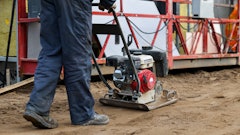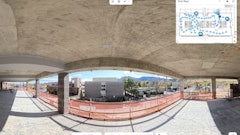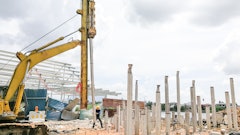Let's discuss the rental process for 2009, 2010 and maybe 2011. Who knows, this may be the rental process going forward for many years...
Renting equipment in 2009 and beyond is going to be different from what you are accustomed to. There will be a lot of equipment available, some of it good and some of it bad. Rental rates will be all over the place, as well - again, some good and some bad.
Service is another story. There will be rental companies that have adequate staff, and there will be those who have cut back for any number of reasons and will not be able to repair your rental equipment within a reasonable time frame.
When you consider rental, your rental goals have to coincide with your goals for 2009 and beyond. What is your game plan for 2009 and how does rental fit into the program? If your goal is to bid on a lot of work covering different disciplines, having a good handle on rental equipment will be a must, because you cannot own enough equipment to meet your potential needs.
If your goal is to make money, you will need rental equipment to meet your needs, when you need it (with all the attachments to make your work easier), as well as reasonable rates and the service to keep you working.
Benefits of one-stop rental
On the other hand, rental companies are looking for people like you and, if they have their heads on straight, they are looking to help you meet your goals. They are looking for long-term relationships. They want to get to know your business, your field personnel and your internal personnel to make your business life easier and more profitable.
From your standpoint, you get to work with one company to order rental equipment; determine a rate for the time period you need it; work out a time for delivery and pickup; and deal with any billing issues that may arise. It's no secret that companies now prefer to consolidate vendors. The rental process is no different. It's just a lot easier to deal with one company on a job or over the entire construction season.
Right now, you have an opportunity to arrange a contract with a rental company in which they get "first-call" in exchange for set rates for the construction season; a supply of Grade A equipment with the attachments you need; the ability to meet your service expectations; agreed upon fuel and cartage prices; and the opportunity to earn some form of "loyalty points" for a certain volume of business. Having such an arrangement in place will save you time and money.
Certain rental companies may also provide access to your rental records through a web portal. You will know what you have out on rent; where it is; the rate you are paying; your call-off numbers and dates called off; and your receivables balance. If you want, you can even allocate rental costs by your job numbers. Having this available will again save you time and money.
General contractors can especially benefit from this type of arrangement. Having one rental company on a jobsite billing the general contractor direct will cut down on total rentals required and the cost of the project. If each contractor brings in rental equipment that is then billed to the project, it means you probably have under-utilized equipment on site and excessive rental dollars charged to the job. In this day and age, when you need every dollar you can save, this is not acceptable.
A win-win situation
So what would I look for from a rental company?
- Newer equipment is less likely to break down
- The attachments I need on the equipment
- Enough delivery trucks to deliver and pick up equipment
- Drivers who know the equipment
- Agreed upon rates
- A billing system to make my life simpler
- Exceptional service
- Personnel dedicated to my account
- A loyalty program
In exchange, the rental company would expect "first-call" status. If you keep your end of the bargain, you can rest assured of the service you expect. If you don't, the field reps will know, the relationship will deteriorate and you will lose the profit advantage you have worked out.
Having one rental company on site for a large job can save a lot of dollars. But even a smaller contractor using a single rental company can get the same advantages if you negotiate a contract.
In any event, in 2009, those involved in construction work cannot afford to spend more than they have to, or have excessive downtime because they have not earned the loyalty of their rental company. Work out a deal, get acquainted, keep up your end of the bargain and make more money. ?




















